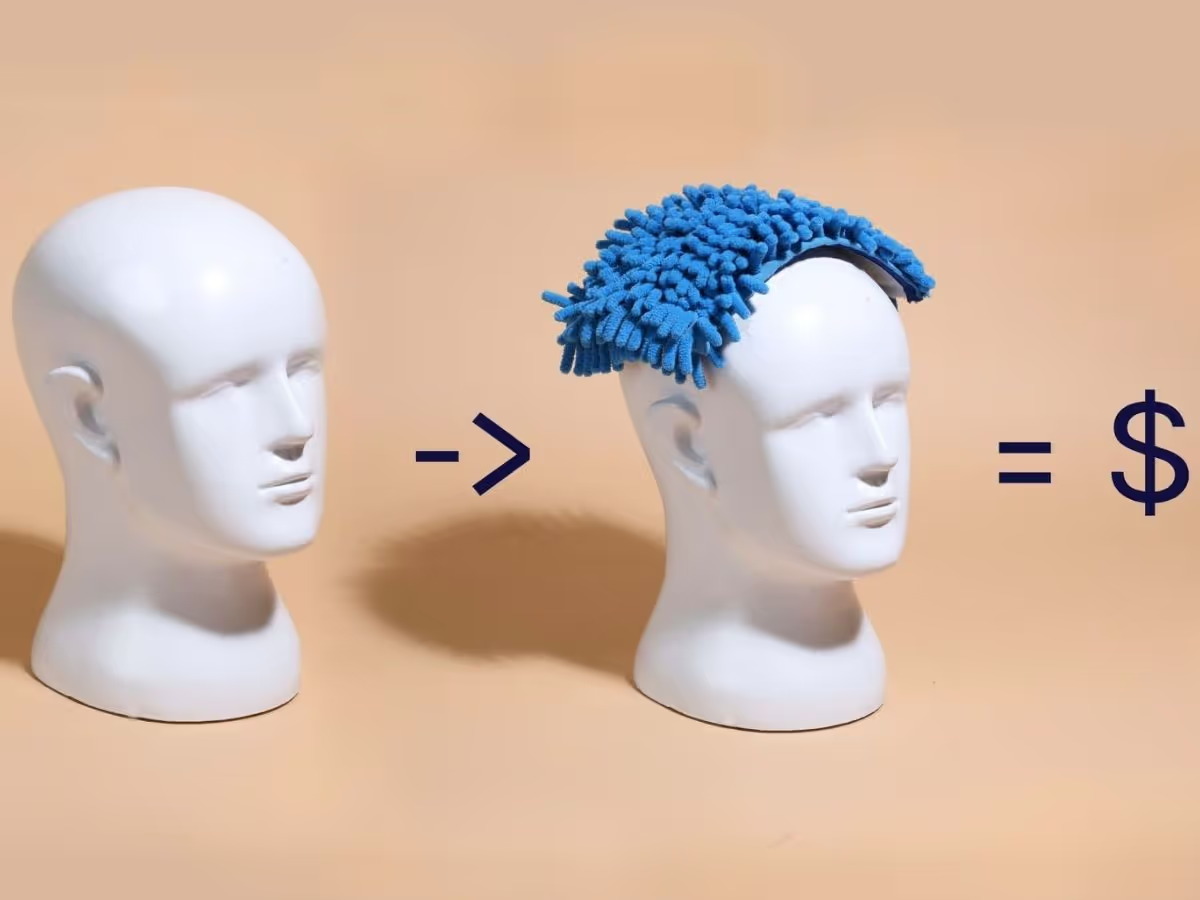See progress in 90 days



Pilot has options for you
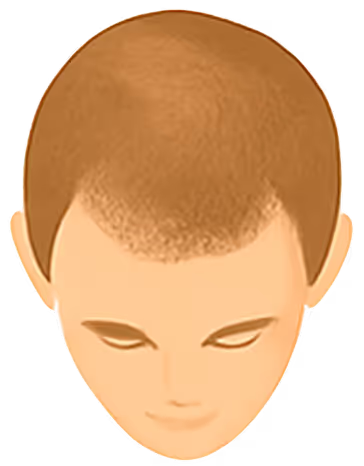
Starter
Ideal for early thinning
Stimulate follicles
Increase blood flow
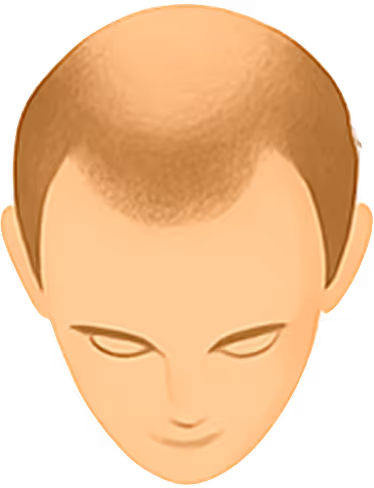
2-in-1
For receding and thinning
2-in-1 for best results
Over 92% success rate[1]
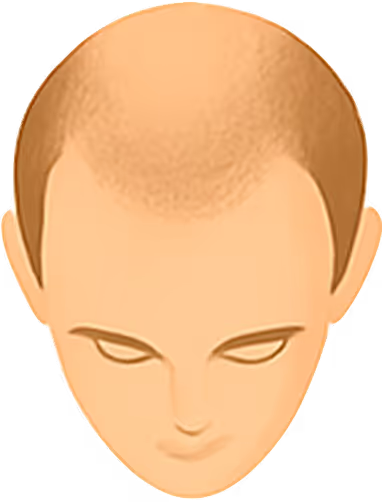
Advanced
Targets advanced hair loss
Newer treatment option
Growth within 3–6 months
.svg)
Based on your stage of hair loss and medical history, a qualified practitioner will be available to discuss your treatment options and recommend a treatment plan for you.
Most men on Pilot’s hair program make use of our personalised plans—your practitioner can help you get the results you’re looking for too.
Clinically proven solutions
Take action early, enjoy better results later
Because he took action early, he was successful in saving and regrowing his hair.
Timeline of treatment
3 months
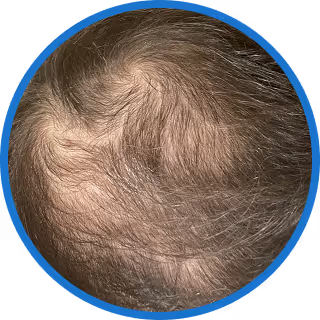
Activate
- Potent active ingredients begin working immediately
- Fine hairs can fall to make room for new growth
- Some men notice less shedding and improved thickness

6 months

Grow
- Balding patches become less noticeable
- Hair loss may have stopped altogether
- Hair becomes noticeably thicker and stronger

9 months+
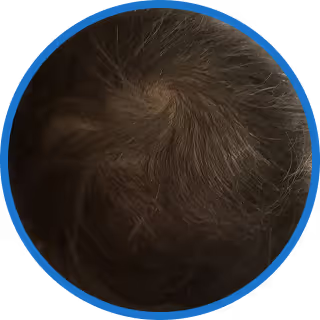
Show
- Hair continues to grow longer and stronger
- Thinning areas fill in and hairline becomes more defined
- Feel confident in your new growth




How Pilot works

Online assessment

Discreet, fast shipping

Ongoing care
How hair loss happens
High levels of DHT can shrink your hair follicles, shortening the hair growth cycle.
Pilot’s treatment options can help address this issue, giving hope to men wanting to keep and regrow their hair.
Medical support at every step
90%
66%
2%
side effects

Dr Matthew Vickers, Pilot practitioner
“Pilot's practitioner's can help find an effective treatment to prevent hair loss with added convenience and discretion.
Treatment options have low risks of side-effects, and our clinical team are here to support you at every stage of your journey to maximise your chances of seeing great results.”
Got questions?
We have answers.
Learn more about hair loss
Check out the feature articles, or visit our Health Hub blog and level up your knowledge on the strategies, costs, and range of options available for keeping your hair.
Visit Health HubFAQs
.svg)
We offer a free consult with a practitioner to get you started.
Our dual-ingredient treatment plan is about $1.60/ day for a personalised treatment plan. All plans include free, unlimited follow-up consultations, discreet delivery, and automatic delivery every 3 months (you can cancel at any time).
.svg)
Big hair loss clinics, GPs, chemists; we all have access to many of the same ingredients in our treatment plans. We’re just able to offer them cheaper. Here’s why:
- We operate entirely online
- We don't rely on unfair margins
- We're an established Aussie company
- We're here for the long haul, not to make a quick buck
Learn more about how Pilot stacks up against other clinics in the hair loss comparison.
.svg)
At Pilot, we have access to the two most effective types of treatment for hair loss. These two treatments have both been around for decades and have shown results for thousands of men around the world.
We offer unlimited follow-up consultations, which means we can continually personalise your treatment plan to get the most out of your treatment.
.svg)
For men, testosterone is naturally converted into a hormone called dihydrotestosterone (DHT).
DHT is essential for young men as it's vital for sexual development and other aspects of growth. After puberty and into manhood, it becomes less necessary and can actually cause issues as we age. One of these detrimental effects is when DHT interacts with hair follicles, it can lead to the shortening of the hair growth phase. This results in smaller, thinner hairs and sparser growth.
.svg)
Yes we did! We made some amusing claims (at least we thought they were) about Ashley & Martin, which led to them filing court documents against us. We settled in the end, but along the way we learned about the difference in their pricing compared to Pilot, as well as some interesting information about a few claims A&M had made about their products and services in the past. You can read up on it here.
.svg)
Some men think that hair loss treatments for men can only halt the balding process, however, studies have shown that hair loss can be reversed to some degree. With the treatments Pilot offers, many patients experience regrowth to some degree. The key to success is starting early though, as it is true that there’s a point where it can be too late to treat hair loss with conventional medication.
.svg)
Mosh previously went on a campaign against cheap hair loss solutions, even going so far as to say “If you really want cheap hair growth – buy a wig” in one of their ads. More recently however, they seem to have changed their tune and have dropped their prices in some instances. They can now be seen comparing their treatment to a McValue box and running ads featuring Flavor Flav for some reason.
Pilot's standard 2 ingredient treatment is $49 a month, while Mosh advertise theirs at $44. For clarity, this is only if you pay for 9 months of treatment upfront with Mosh. Their regular pricing is $55 a month, compared to Pilot’s $49.
Citations
[1] DOI:10.7759/cureus.77549
* Use code HAIR50 to get 50% off your first order of Pilot’s hair loss treatment. Offer valid for eligible new patients to Pilot only (offer does not apply to existing patients, changes to treatment or to previous patients who have re-started treatment) and must be redeemed at online checkout by 23:59 AEST on October 31st, 2025. Limit of one offer per patient. Cannot be combined with any other offer or retroactively applied. Prices are subject to change. If a lower price is later advertised, this offer will no longer apply and cannot be used in conjunction with the lower price offered. Further T&Cs apply.
† Money-back guarantee T&Cs
[‡] PMID: 23960389














